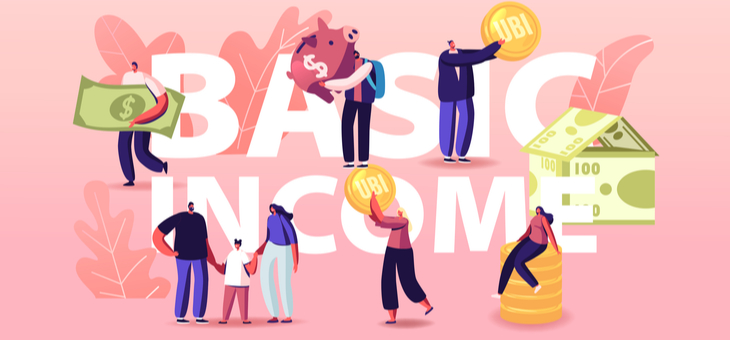A basic income support system could lift half a million Australians above the poverty line, according to a new study, with a big proportion of that number older unemployed Australians.
The study’s lead author, Macquarie University senior economics lecturer Ben Spies-Butcher, told The New Daily that the JobSeeker initiative during the pandemic had loosened means testing of income support, but that we are now returning to a “stingy” system.
“The medium-term problem of high unemployment is also one of high under-employment and creating a secure income source now for those (workers) is psychologically extremely important,” said Dr Spies-Butcher.
“We have to give people income security, and we need to make it easy for them to manage while there are going to be very unpredictable labour market earnings.”
Projections indicate that unemployment will remain above pre-pandemic levels for four years.
Researchers say a basic income scheme of $18,500 per annum would cut Australia’s poverty rate from 11 per cent to 9.1 per cent.
They investigated replacing JobSeeker and Youth Allowance with government payments to most people of working age but concede such a policy is “not a straightforward political choice”.
That’s mostly because taxation would need to rise.
“Our results suggest basic income has the potential to significantly reduce inequality and poverty while also requiring taxes to rise substantially. Placing these trade-offs in international context, we find the policy would reduce inequality to levels similar to Nordic welfare states while increasing overall taxation to approximately the OECD average.”
The federal government came to office with income tax cuts a cornerstone policy.
The pandemic has revived interest in ‘universal’ basic income schemes, long proposed but never implemented. A universal basic income (UBI) is defined as “a payment made to all adult individuals that allows people to meet their basic needs. It is made without any work or activity tests.” In 2016, an Australian parliamentary paper discussed the idea.
“UBI has returned to the policy agenda as the result of concerns about technological change. Some commentators argue that new technology will permanently reduce the demand for labour leading to job losses, stagnant incomes and worsening inequality,” the paper stated.
It cited common objections to UBI including “scepticism about the idea technological change will lead to widespread job destruction, concern about the high cost of a UBI, concern about the likely impact of a UBI on the economy, and concern that a UBI will undermine social solidarity and support for the social contract”.
The Guardian reported on a Finnish UBI trial in 2017 and 2018: “Europe’s first national, government-backed basic income experiment did not do much to encourage recipients into work but did improve their mental wellbeing, confidence and life satisfaction …”
“The basic income recipients were more satisfied with their lives and experienced less mental strain than the control group,” the study, by researchers at Helsinki University, concluded. “They also had a more positive perception of their economic welfare.”
In the trial, 2000 randomly selected unemployed people were granted a regular monthly income of €560 ($1021) with no obligation to seek a job and no reduction in their payment if they accepted one.
Governments monitored the trial as a potential means to reduce dependence on the state and cut welfare costs.
“Some people said the basic income had zero effect on their productivity, as there were still no jobs in the area they were trained for,” said Professor Helena Blomberg-Kroll, who led the study. “But others said that with the basic income they were prepared to take low-paying jobs they would otherwise have avoided.
“Some said the basic income allowed them to go back to the life they had before they became unemployed, while others said it gave them the power to say no to low-paid insecure jobs, and thus increased their sense of autonomy.”
The scheme also gave some participants “the possibility to try to live their dreams”, Prof. Blomberg-Kroll said. “Freelancers and artists and entrepreneurs had more positive views on the effects of the basic income, which some felt had created opportunities for them to start businesses.”
“The security of the basic income allowed them to do more meaningful things, as they felt it legitimised this kind of care work. Many of the people who performed such unpaid activities during the two-year period referred to it as work.”
Prof. Blomberg-Kroll said the results of the study could support arguments both for and against basic income.
“But as we’ve all learnt in the early part of 2020, insecurity is not a good way to live,” he said.
“While basic income can’t solve all our health and societal problems, there is certainly a discussion to be had that it could be part of the solution in times of economic hardship.”
Is enough being done to tackle the challenges faced by older unemployed Australians? Does 2021 loom as a test once COVID support payments come to an end?
If you enjoy our content, don’t keep it to yourself. Share our free eNews with your friends and encourage them to sign up.
Related articles:
https://www.yourlifechoices.com.au/government/federal-budget/mature-age-jobless-ignored
https://www.yourlifechoices.com.au/health/covid19/pandemic-hits-older-australians-hardest
https://www.yourlifechoices.com.au/government/federal-government/allowing-industries-to-disappear

